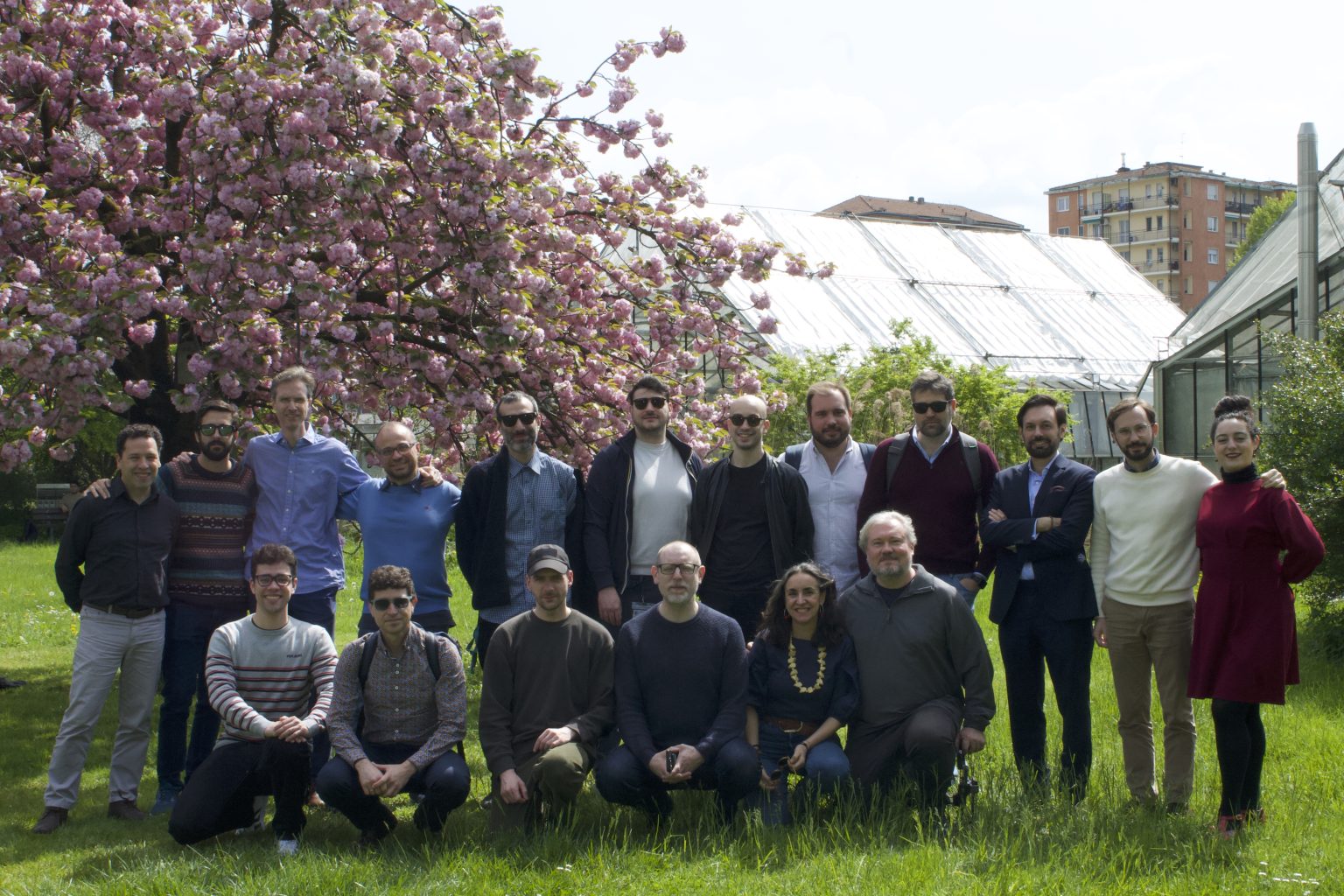The Second General Assembly of the Repertorium Project took place at the Politecnico di Milano’s facilities in Milan from April 4th to 5th, 2024. Consortium members had the opportunity to share their progress, exchange ideas and experiences, and practise some of the tests.
Presentations outlined the project’s progress concerning its core tasks: the creation of necessary tools and datasets for manuscript optical music recognition, the progress of the Solesmes archive’s digitisation (now complete!), the development of sound processing technology for sound localisation, and progress made in creating a new immersive audio experience. The incredible outcomes to date of the communication campaign, which has successfully pitched the story to many of the world’s leading newspapers and magazines, were presented. The next steps in each task were discussed, and attendees had the chance on-site to test the innovative head-tracking technology that the Politecnico is perfecting to integrate into Repertorium’s final immersive and navigable audio experience.
Thanks to the Politecnico’s hospitality and the University of Jaén’s coordination, the meeting was a complete success, and attendees also enjoyed a pleasant visit to the Politecnico’s facilities and tasted the delicious local cuisine, all well deserved for a job well done. The meeting also served to reinforce the sense that all partners in the project are part of a great team. Everyone’s involvement and enthusiasm are necessary for the project to continue advancing in its mission of preserving our cultural heritage through innovative tech and AI.
As we look forward to our next in-person meeting, we’re thrilled to announce that it will be held in a truly special location. Stay tuned for the exciting reveal!





